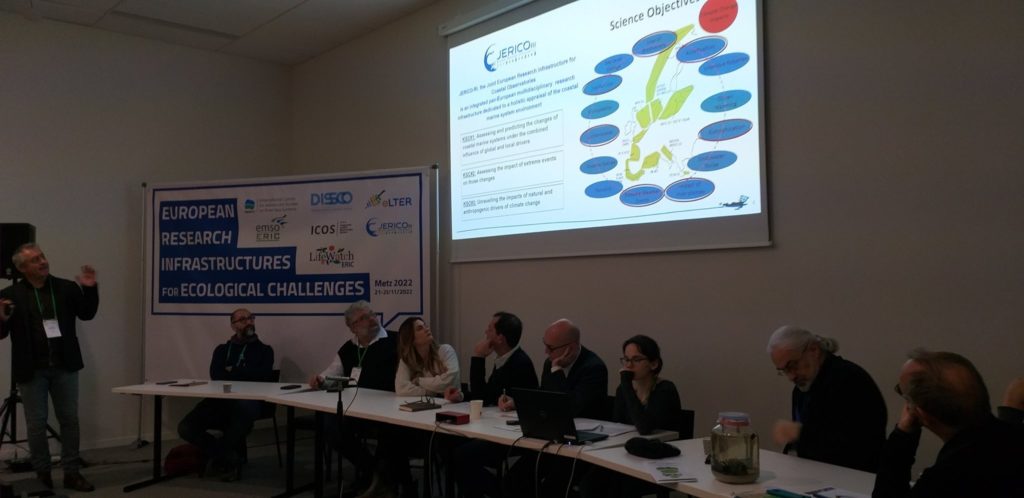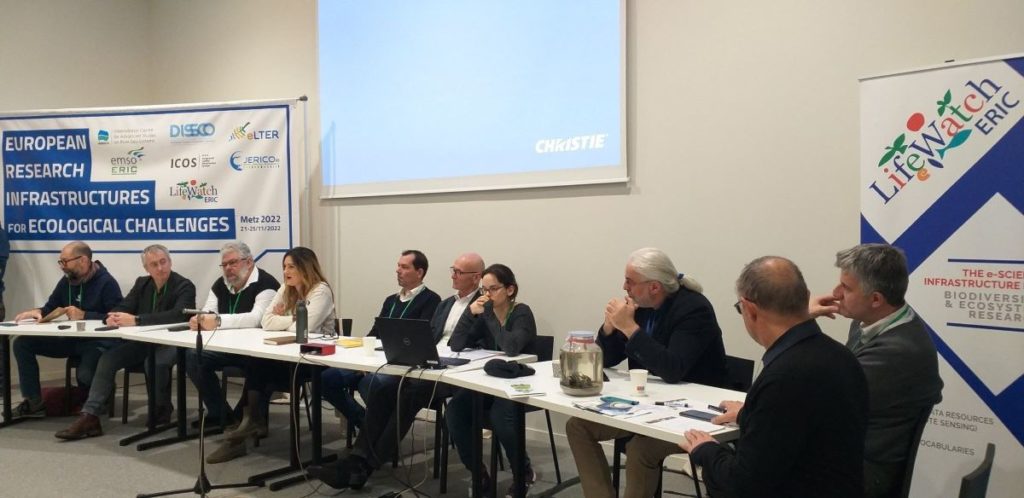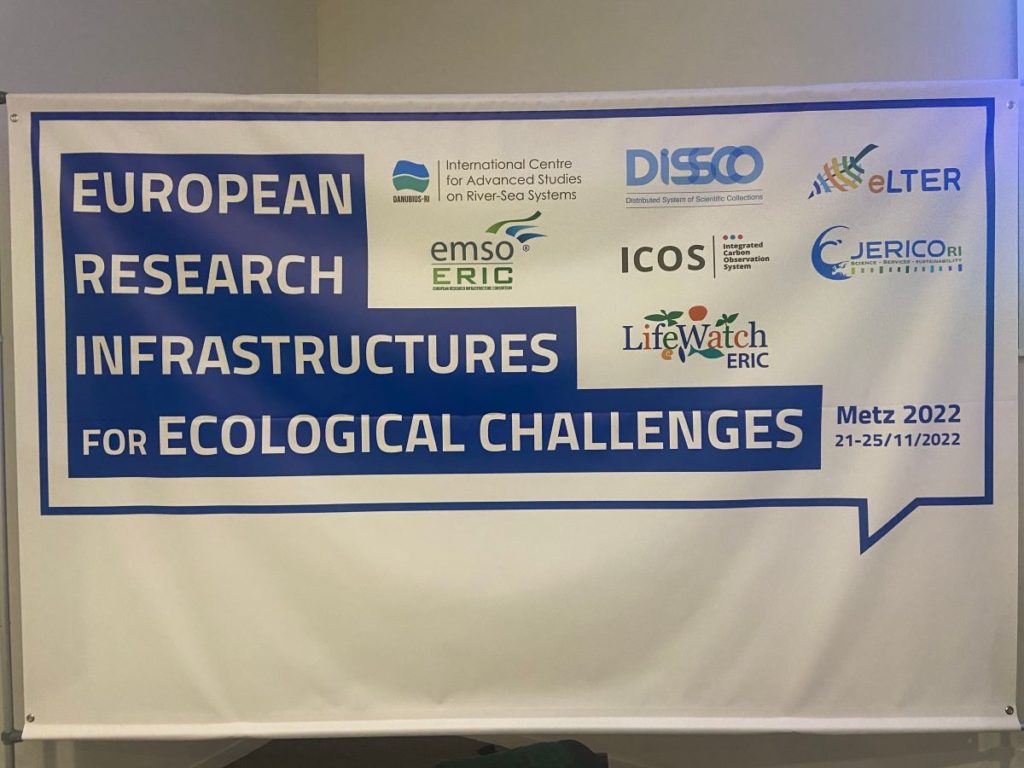The ‘EcologyMetz2022, International Conference on Ecological Sciences & Evolution’ entitled ‘Ecology and Evolution: New perspectives and societal challenges’ conference took place between 21st – 25th November 2022 in Metz, France.
Laurent Delauney (JERICO-S3 coordinator and interim JERICO-DS coordinator, Ifremer, France) represented JERICO-RI and participated as an invited panellist at a special session on European RI’s entitled ‘Advanced facilities for the ecological research: the European Research Infrastructures’.

This session focused on the establishment and promotion of European Research Infrastructures (ERIs). The European Commission is strongly promoting the establishment and operation of European Research Infrastructures (ERIs), funded by the Member States, as key components of the scientific research landscape supporting the global competitiveness of European research communities. ERIs are aimed at offering high quality data and advanced facilities to European scientists, with particular attention towards early career researchers, promoting innovation, technology transfer to industries, and citizen engagement in science.
In the area of Ecology, some ERIs have already been established as European Research Infrastructure Consortia (ERIC), and are currently operational, whilst others are in the process of becoming so. Globally, the landscape of European Research Infrastructures offers monitoring sites and facilities covering all types of environmental domains, i.e., terrestrial, freshwater, transitional and marine waters and key research areas, such as those dealing with biodiversity organisation, conservation and restoration, with ecosystem processes and carbon sequestration, water and energy fluxes or with agroecosystems.
The session included an expert panel, with leading scientists from advanced ERIs supporting European scientific research on biodiversity and ecosystems.

The expert panel included scientists from LifeWatch ERIC (the European e-Science Infrastructure for Biodiversity and Ecosystem Research), the ecosystem component of ICOS ERIC (the Integrated Carbon Observation System), eLTER RI (the Long Term Ecological Research site network), DiSSCo (the Distributed System of Scientific Collections), Danubius-RI (the International Centre on Advanced Studies on River-Sea Systems), the marine Research Infrastructures JERICO-RI (the Joint European Infrastructure of Coastal Observatories), EMBRC ERIC (the European Marine Biological Resource Centre), and EMSO ERIC (the European Multidisciplinary Seafloor and water column Observatory).
The expert panel presented their key integrated research facilities to the SFE2 GFÖ EEF Conference, what these infrastructures offer to the relevant ecological research community of practice, a view of their data, services and other types of research resources, the opportunities for engagement, and on the possibilities to propose new types of data and services to be promoted, collected, and developed by the ERIs.
The discussion focused on the major scientific and societal challenges of contemporary times and on the greatest threats faced by biodiversity, ecosystem services and societal benefits, in the context of natural and anthropic pressures, including climate change impacts. The leading scientists presented how each ERI is committed to collaboratively tackling these issues, supporting the creation of new multidisciplinary and cross-domain knowledge towards facilitating the implementation of current policies at all levels and the creation of new ones. They demonstrated how scientists can access their integrated research facilities.
The session was organised by LifeWatch ERIC (Alberto Basset (University of Salento & LifeWatch), Christos Arvanitidis (LifeWatch ERIC), Juan Miguel González-Aranda (LifeWatch ERIC), Peter van Tienderen (University of Amsterdam & LifeWatch ERIC), Dario Papale (University of Tuscia & ICOS ETC).

About LifeWatch ERIC
LifeWatch ERIC is a European Research Infrastructure Consortium with a mission to provide digital access to global biodiversity content, services, and communities.
Established by the European Commission in 2017, the consortium is dedicated to addressing key planetary challenges and providing e-Science research facilities for the purposes of investigating biodiversity and ecosystem functions and services with the aim of supporting society.
